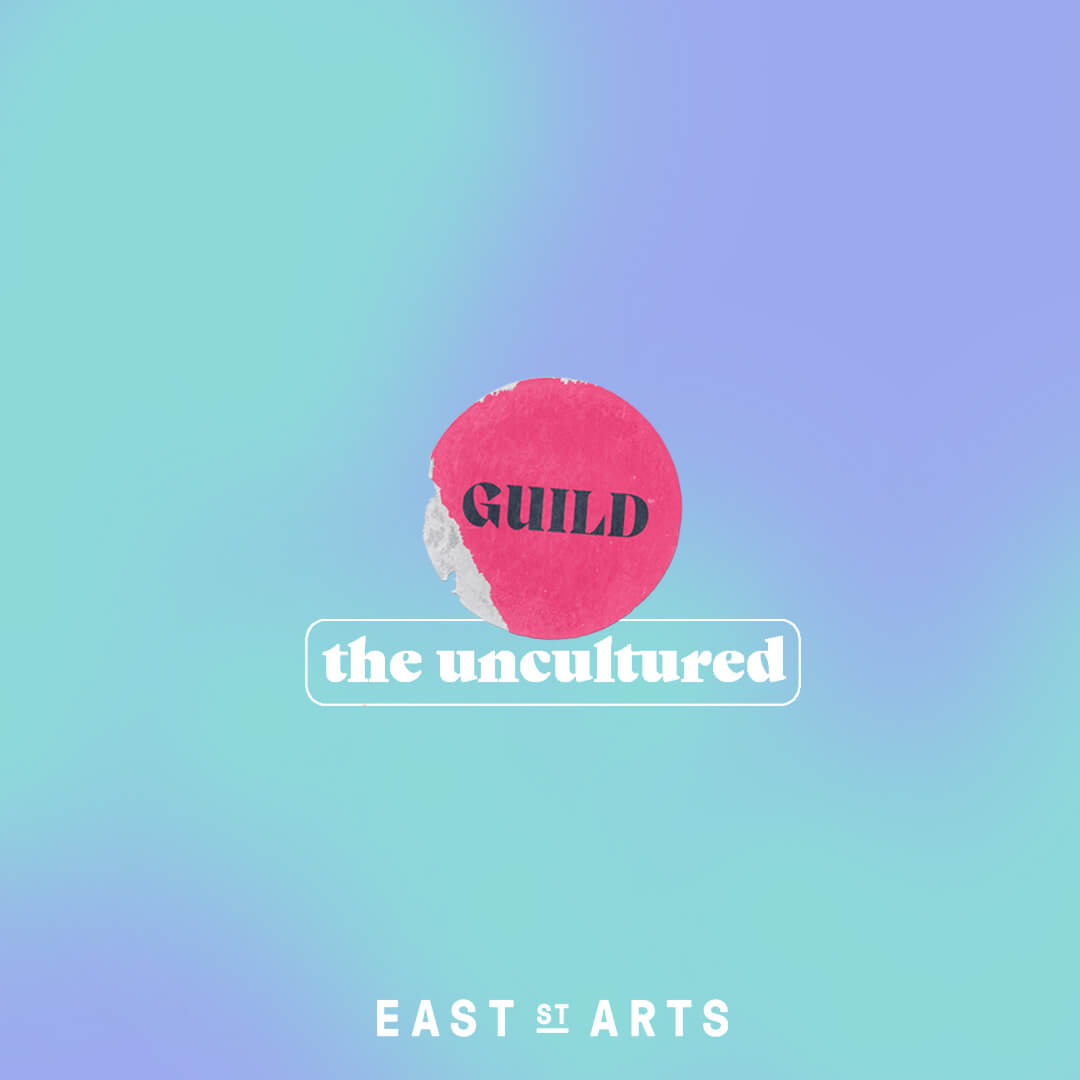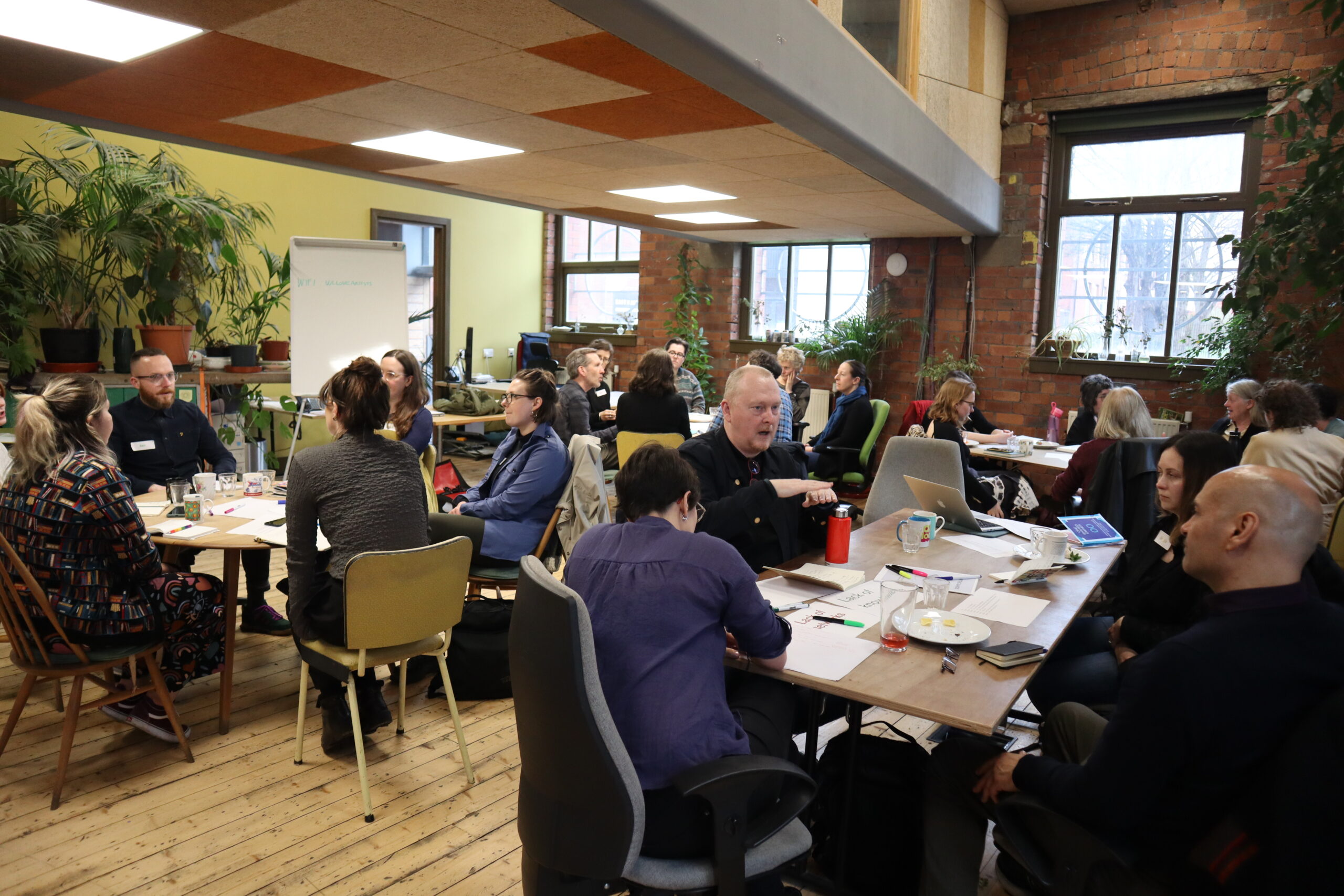The marketing team sat down with Karen Watson (Artistic Director of East Street Arts) for a cup of tea, some Aldi biscuits, and a discussion on just what the Open Doors team mean when they say ‘Campaign’, as well as other important questions.
The Guild programme was designed to be a multi-faceted approach to understanding and supporting artists’ spaces in England. When we were planning what the programme would look like, we felt we needed to get an accurate picture of artists’ spaces. How they are operating, what they need to survive and what key decision-makers and influencers need to know to make more informed decisions related to artist spaces.
Guild as a programme has many parts. Supporting 25 artist spaces across the country. Sector research through a collaborative PhD. Creating a toolkit and resource hub. We knew we needed to lead campaign work that could intersect with all of this work whilst looking outwards to research and demonstrate the vital importance of the artist-led sector and how it can be better supported by policy and decision-makers.
So, we keep hearing Open Doors referred to as a ‘Campaign’. What do you mean by this?
‘Campaign’ does conjure specific (amazing) things with people such as demonstrations, lobbying, politics, common causes, placards and much more. It is a complex word that really encapsulated what we wanted to do with this arm of work. Activity that is designed to impact artists and artist-led spaces in the long term. I see this, and other campaigns we might do, as taking place in two parts.
The first part is gathering data. So much of what we understand about the artist-led sector is informal, organic knowledge, and by researching this and writing it down, we can capture a much more concrete snapshot of the artist-led sector.
Without this data, it is hard to have a jumping-off point for the second stage of a campaign, making noise. Whether this be sharing the research gathered alongside recommendations, lobbying policy and decision-makers, or creating as much disruption as possible to make sure the findings are heard and responded to.
How has putting the campaign in someone else’s hands (in Open Doors case – The Uncultured) allowed it to grow in new directions?
When I developed the plan for Guild with colleagues at East Street, we knew we wanted to campaign – in terms of us knowing we tried to gather research that didn’t formally exist and use this to advocate for change. We also knew there were so many areas we could have chosen to focus our campaign work on – so doing an open call-out for this to be led externally felt totally right for the direction to be decided more democratically.
From a really open call, we met The Uncultured, who developed the campaign’s direction from a series of conversations and by digging through data gathered by the Guild Programme to date. The more we talked about things, the more the idea of spaces and studios came up as the backbone to the artist-led sector. These conversations took place against the backdrop of vital discussions happening across the arts about unpaid labour. It made sense to see what happened when you looked at artists spaces and unpaid labour together.
From interviewing The Uncultured for this project, they stood out because of their work, particularly with the Freelance Task Force. They haven’t disappointed! They have bought a real commitment to advocating for freelance artists, underpinned by an understanding of the precarity that is a constant for so many artists. Their process has combined in-depth knowledge of research methodologies and an informed understanding of the sector with a caring and compassionate approach. They have designed and delivered the Open Doors campaign, which is about a quarter of the way through, in ways that have allowed it to reach new directions and new people, which has been brilliant to see.
What do you think this and future Campaigns can do for the artist-led sector?
It is important to say that the artist-led sector informally and formally campaigns all the time – without calling what it does a campaign. But choosing explicitly to call your work a ‘Campaign’ (as opposed to a project or a programme) creates potential. Because this term is understood and recognized by those who hold power as a formal intent to make change. And sometimes, frustratingly, it is only by playing into the language that those who have power recognize that facilitates them giving your work the recognition it deserves.
What we are doing isn’t necessarily anything new or innovative. But we are in a privileged position with our current work that we can put funding, our networks, our expertise, alongside that of our brilliant campaign leads, The Uncultured, into creating a campaign with such a large scope.
But overall, what we’ve found is that any time can become pivotal for making a change in the arts – and a collective voice underpinned by robust data sets is often what is most recognized by those who can make the changes needed sector-wide.
Keep up to date with the Open Doors campaign here.



